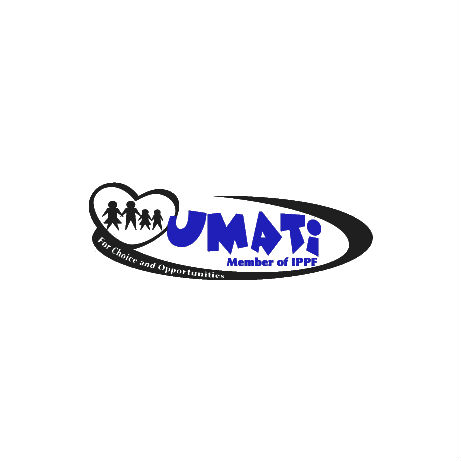

| 31 March 2016
Family Planning Association of Nepal
Established in 1959. the Family Planning Association of Nepal (FPAN) is Nepal's first national family planning service delivery and advocacy organization. It is a major collaborator of the Government of Nepal's national sexual and reproductive health (SRH) program, contributing a greater percentage of all SRH services in Nepal annually. FPAN serves Nepalese people in 44 districts, focusing on the poor, marginalized, socially excluded and underserved (PMSEU) populations, which include female sex workers, people living with HIV (PLHIV), LGBTIQ people, injecting drug users, men who have sex with men (MSM), migrant workers, people with disabilities (PWD), survivors of gender-based violence (GBV), urban slum dweller and people affected by disaster and crisis. The mission of FPAN is to "champion a volunteer movement for increased provision of SRHR to all, particularly to those most at risk, marginalized, and under-served". The planned outcomes set by FPAN for the strategic planning period (2016-2022) include: Nepal Government respects, protects and fulfil sexual and reproductive rights and gender equality; Nepalese people empowered to act freely on their sexual and reproductive health and rights; a high quality integrated sexual and reproductive health services delivered; and a high performing, accountable and strong FPAN. The success of FPAN is due to its extensive and diverse network of service delivery points, as well as its expertly trained staff and volunteers who provide services in areas where they would otherwise be unavailable. FPAN provides an Integrated Package of Essential Services (IPES), which includes sexuality counselling, contraception, including emergency contraception, safe abortion, STIS/RTIs, HIV & AIDS, obstetrics, gynecological and sexual & gender-based violence services. These services are provided across 974 service delivery points (including 270 clinical SDPs, 22 family health clinics, 56 community health clinics, 75 associate clinics, 117 mobile teams, and 794 non-clinical service delivery points). FPAN provides approximately four million SRH services each year across its service delivery points, with family planning accounting for 40%, STIs/RTIs for 14%, gynaecological services for 12%, HIV services for 10%, and other services accounting for the remaining 24%. FPAN has eight clinical training centres that are connected to its family health clinics, which provide full range of family planning and reproductive health services. The training centres are accredited by the National Health Training Centre, (MoHP). These centres provide a variety of family planning and sexual and reproductive health training to health care providers from FPAN, government, and non-governmental organizations (NGO) health facilities.

| 31 March 2016
Uzazi na Malezi Bora Tanzania
Chama cha Uzazi na Malezi Bora Tanzania (UMATI) is an autonomous, non-political national NGO providing Sexual and Reproductive Health and Rights (SRHR) information, education, and services in Tanzania. It was established in 1959 and became a full IPPF Member Association in 1973. Since then, it has developed a comprehensive range of sexual and reproductive health (SRH) services for Tanzanian young people. UMATI invests in the provision of gender responsiveness SRH services youth and women empowerment, and evidence-based advocacy through result-based projects implemented in 20 regions in Tanzania Mainland, and Zanzibar. UMATI recognizes that AGYW and ABYM experience different health needs and risks especially those related to HIV, STIs, and sexual gender-based violence. UMATI’s SRH programmes are developed based on the unmet need and government priorities and its SRH and FP service delivery has always been targeting the hard-to-reach communities, socially excluded and under-served people especially women, girls, and young people, and the key population. UMATI empowers adolescents and young people (10-24) to realize and demand their SRHR for effective utilization of the services. The Association, through the Comprehensive Sexuality Education (CSE) approach, reaches young people with knowledge, skills, and Social Behaviour Change Communication (SBCC) messages to freely access services at UMATI clinics, youth centers, and selected government facilities. Different approaches are used to reach adolescents and youth such as peer education sessions, IEC/BCC Materials, debate, health talk/dialogues, folk media, social media, radio, TV, e-sessions, community forum/dialogues, community meetings, and SRH service outreaches. UMATI collaborates with the Ministry of Health and Local Government Authorities to provide SRH services through 943 service points which include its own 5 permanent clinics and seven youth centers and support 391 community-based distributors/community-based services (CBDs/CBSs). UMATI’s SRH programmes are effectively maintained and delivered by 76 committed staff, 340 peer educators and a youth action movement membership of 400 activists. UMATI receives funding support for its programmes from donors and partners such as Youth Incentives, Pathfinder International, PLAN International, UKAIDS, She Decides, UNICEF, UNFPA, Bills & Melinda Gates Foundation, Health Action International, SIMAVI, BERGSTROM Foundation, ZENSHO, and ActionAid Tanzania.







